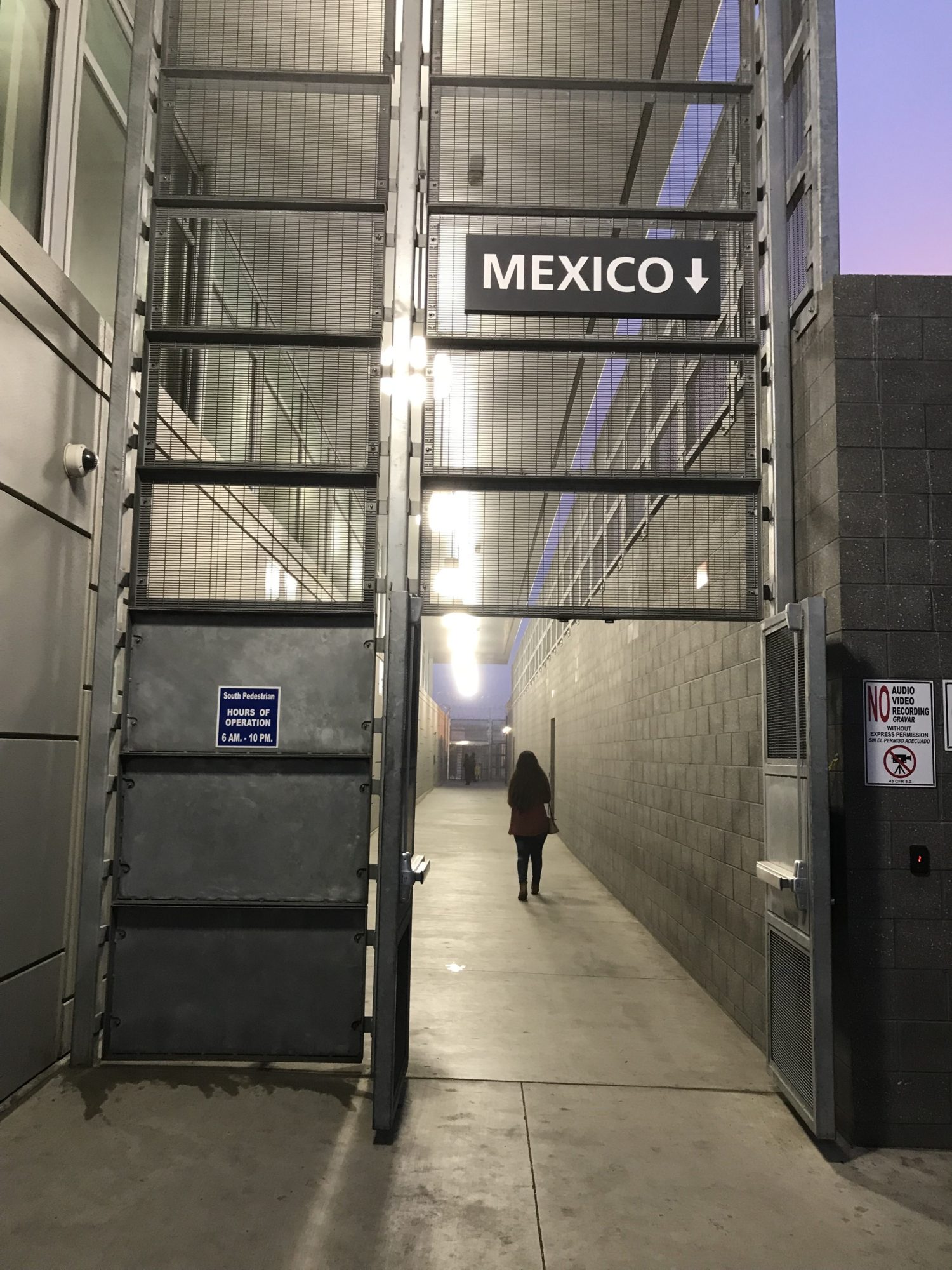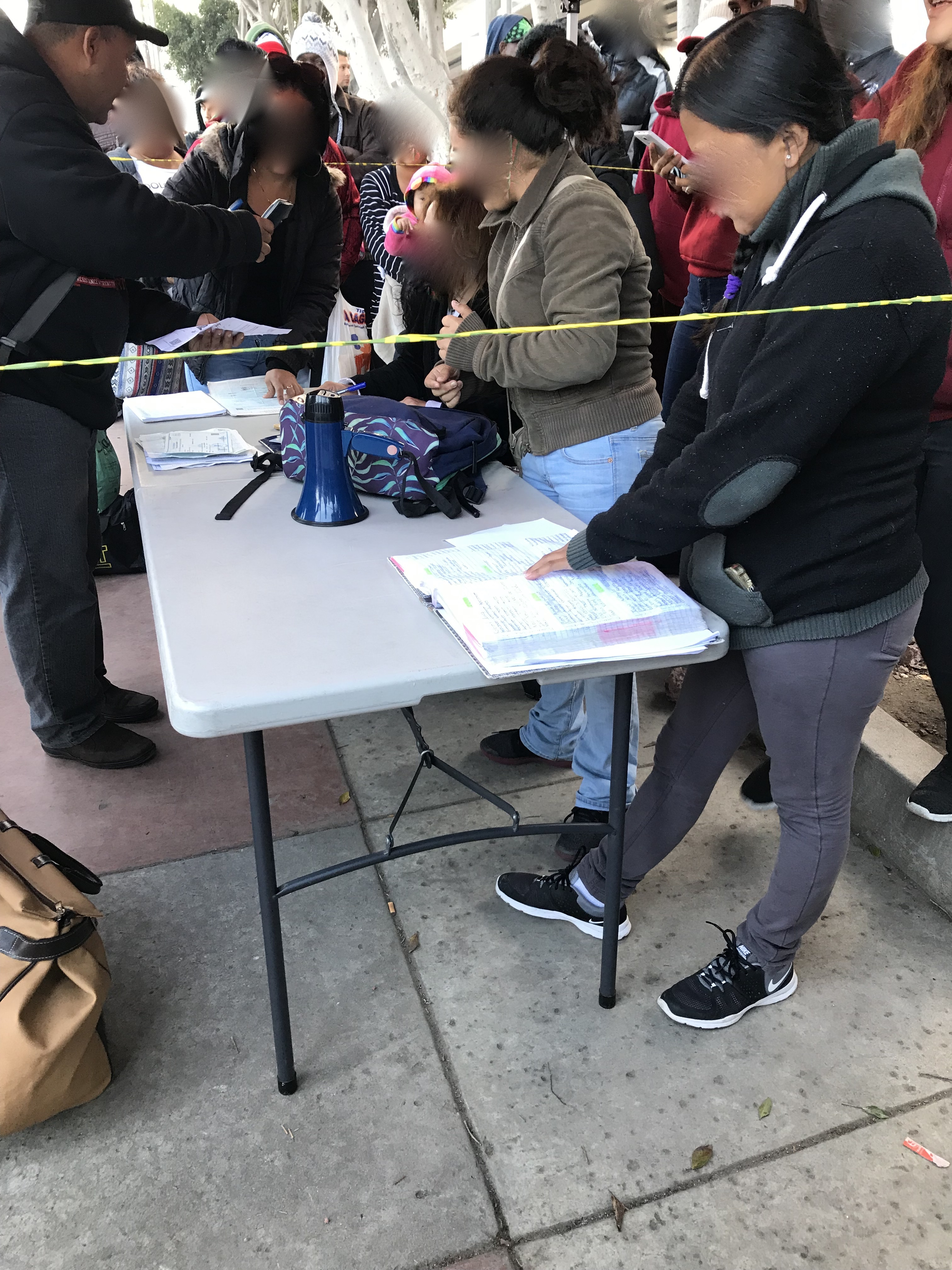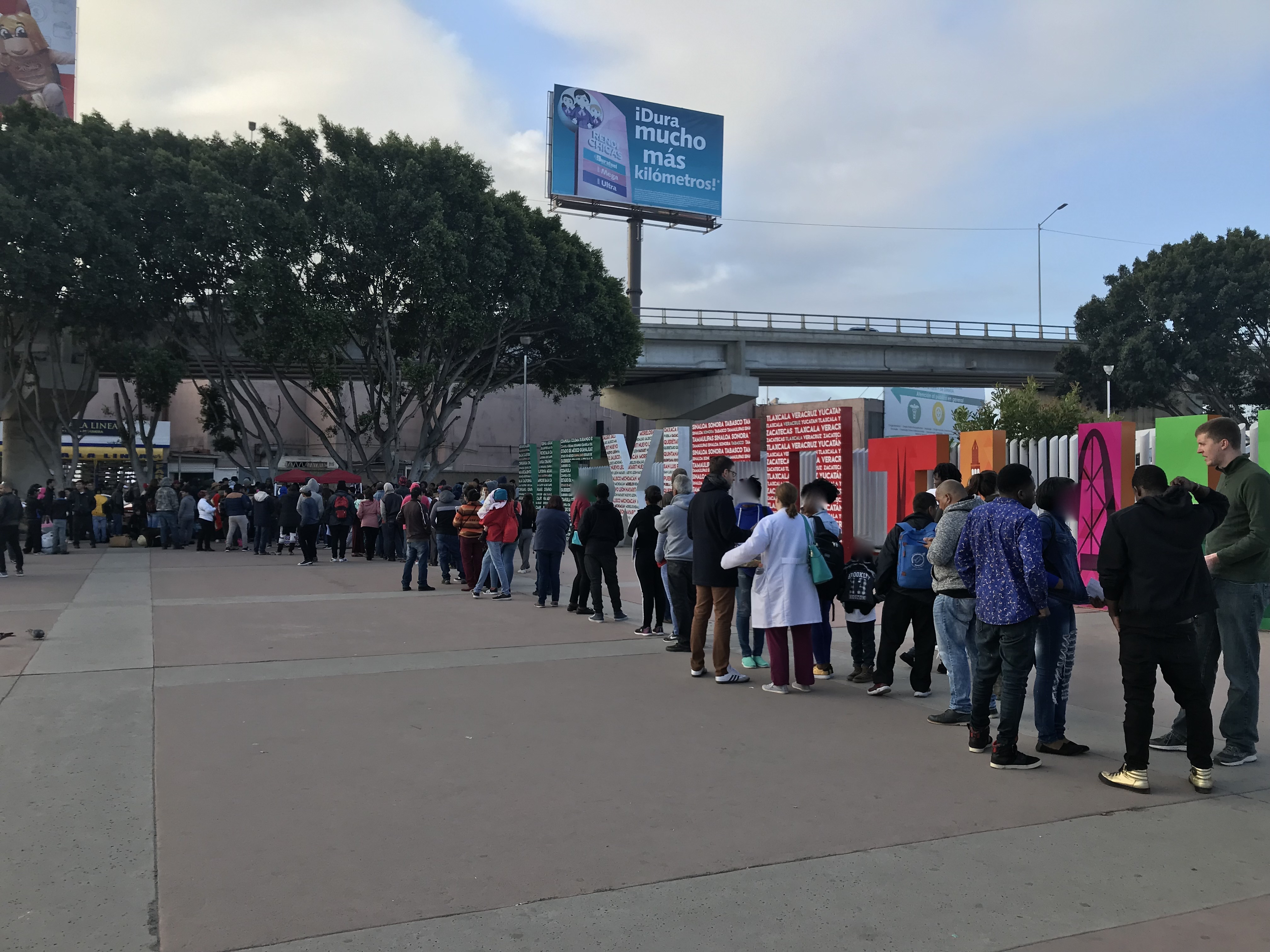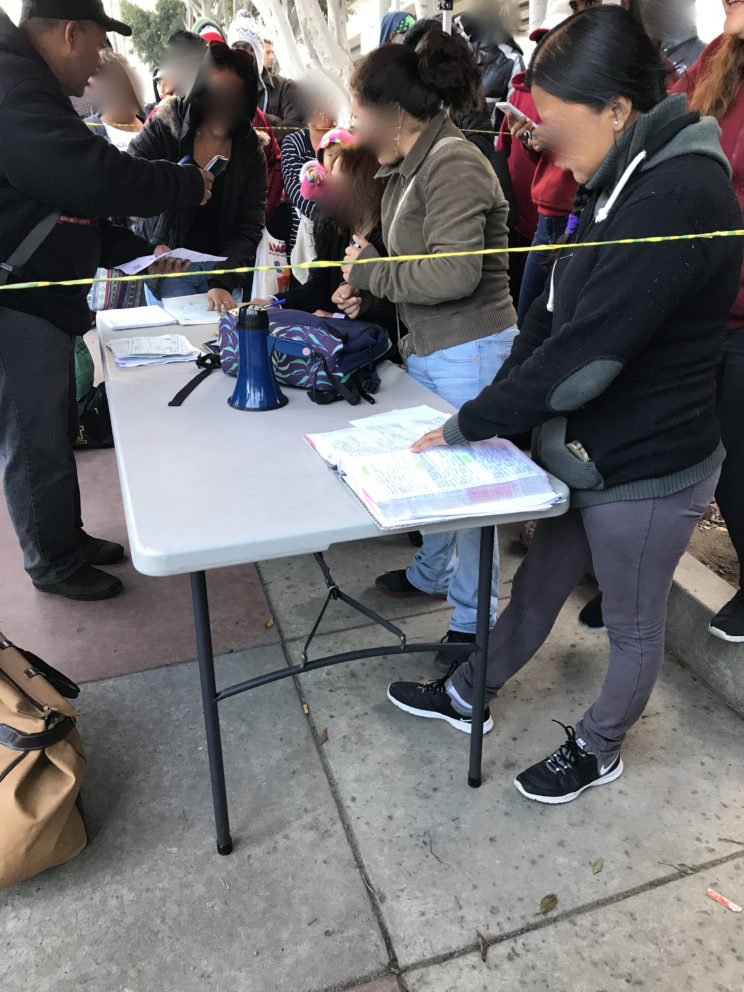JDC’s Katie Kavanagh recounts her experience working with the Border Rights Project of Al Otro Lado

There is a crisis at our southern border, but it is not a matter of national security. It is first and foremost a humanitarian crisis, and one of desperate proportions. A wall is not the answer, nor will the solution come from Washington D.C. or Mexico City. The answer must come from the actions and voices of everyday people who refuse to turn their backs and hearts on those in need.
Watch: In a BASF Minute: Responding to the Border Crisis from Bar Association of San Francisco on Vimeo.
Through my work with the California Collaborative for Immigrant Justice (CCIJ), which is based at the Justice & Diversity Center of the Bar Association of San Francisco, I traveled to Tijuana, Mexico twice in recent months to work with the Border Rights Project of Al Otro Lado – a bi-national, direct legal services organization serving indigent deportees, migrants, and refugees. What I witnessed in Tijuana broke my heart, but the pieces of my broken heart are on fire.
I listened as women told me of years living under the terror of an abusive partner; I met people fleeing gangs they could no longer afford to pay off for safety; I comforted a father who had last seen his wife and son when they were separated at the border over a month ago; I advised young men who had been arrested and tortured for speaking out against their governments, and others who were faced with a choice: join the gang or die; I held the hand of a mother who worried her nursing infant would be taken from her; I wrote parents’ names in Sharpie marker on babies’ arms; and I counseled countless families scarred by unspeakable violence and fear.


The refugees at our border are as diverse as their reasons for fleeing. In a week, I worked with migrants from 11 countries: primarily Mexico, Honduras, and El Salvador, but also Afghanistan, Guatemala, Nicaragua, Cameroon, Guinea, Congo, Haiti, and Russia. I counseled single parents, trans women, unaccompanied minors, and multi-generational families. Some were living on the streets, others in shelters or churches, and the lucky ones in hotels. But with a wait of up to several months to simply approach the U.S. border to request asylum, all were growing desperate.
In Tijuana, I met many warriors. My fellow volunteers—especially those who have moved to Mexico to help full-time—were a constant source of inspiration and comfort. But more importantly, the migrants I met were warriors. I told each of them from the bottom of my heart how much I respected them and the journeys they had undertaken for safety and a better life. It was painful to relay that once they cross to the United States, their struggles will continue. They will be detained for days in “the hielera” (Spanish for “icebox”, dubbed for the uncomfortably cold temperatures inside); they might be separated from partners and children (yes, family separation is still happening); detention could last for months or years; and they will ultimately be fighting for asylum (essentially a death penalty trial for many) in a court system stacked against them, probably without a lawyer. I praised their strength and fortitude and apologized on behalf of my country for what still lay ahead. Later, in private or in the arms of my fellow volunteers, I cried.
The humanitarian crisis at our southern border isn’t going anywhere, but neither am I. Your voice, resources, and heart are needed too. Contact your representative. Donate frequent flier miles to Miles4Migrants, which helps reunite families like the father I wrote about above. Volunteer on the ground or remotely with organizations like Al Otro Lado. Challenge and resist rhetoric that dehumanizes our neighbors who have suffered the most. Now is not the time for building walls, but for overcoming divides.
Read more about Katie’s experience volunteering at the border in our upcoming summer issue of San Francisco Attorney magazine, out in June.
About the author:
Katie Kavanagh is a Rapid Response Attorney with the California Collaborative for Immigrant Justice (CCIJ), based at the Justice & Diversity Center of the Bar Association of San Francisco. As a Rapid Response Attorney, Katie provides emergency legal assistance to individuals who are detained by ICE and supports unrepresented detainees subject to deportation proceedings. Prior to joining CCIJ, Katie was a Staff Attorney and Immigrant Justice Corps Fellow at The Legal Aid Society in New York City. She attended NYU School of Law as a Root-Tilden-Kern Public Interest Scholar, where she participated in the Immigrant Rights Clinic for two years and received the Eric Dean Bender Graduation Prize for her commitment to public service. She also completed immigration-focused internships at The Bronx Defenders, Immigrant Legal Resource Center, and The Door. Before law school, Katie was an immigration paralegal in San Francisco for seven years, including four years at the firm Van Der Hout, Brigagliano & Nightingale. Katie is fluent in Spanish.


